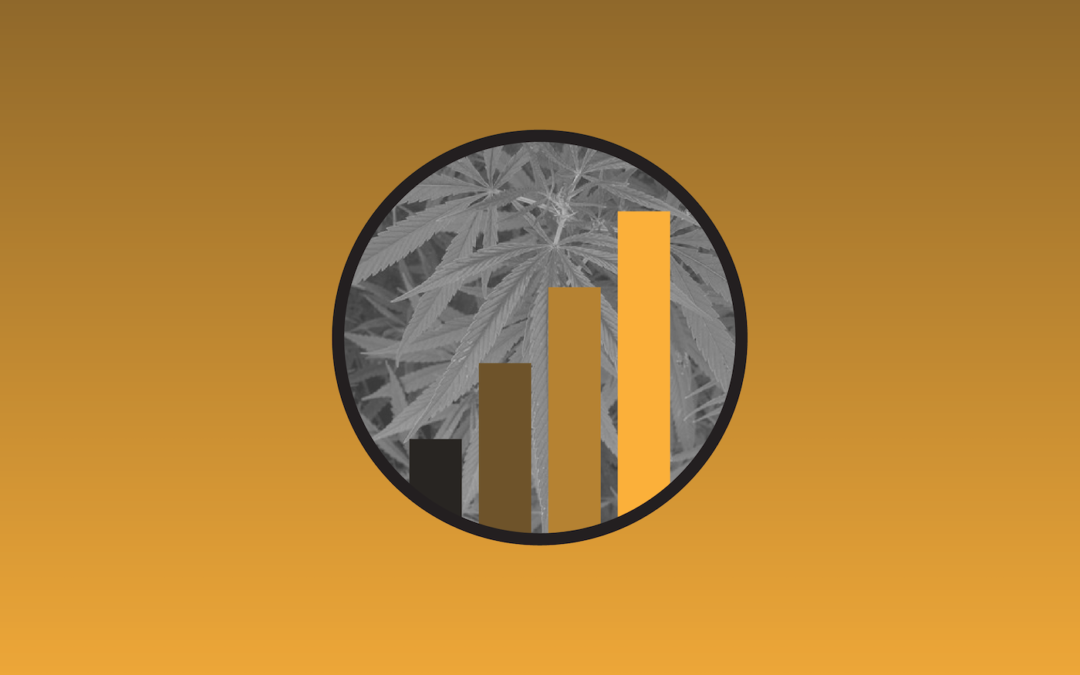CBD is surging in popularity, and these days it can be found everywhere, from specialty creams that combat wrinkles to dog treats that calm your anxious pup. So what is the CBD hype all about? In this article, we’ll cover the basics of CBD, such as how it works and the effects of this new trendy compound, as well as the growing market for CBD (and its potential).
Intro to CBD
Cannabidiol, or CBD, is a naturally-occurring compound that is found in the resinous flower of cannabis. While doesn’t get you high, it is recognized as a safe, non-addictive substance with an array of health benefits. For context, CBD is one of more than a hundred “phytocannabinoids,” which are unique to cannabis. As expected, CBD is closely related to another important medicinally active phytocannabinoid found in marijuana: tetrahydrocannabinol (THC). CBD and THC are the two components of cannabis that have been most studied by scientists.
While both CBD and THC both have significant therapeutic attributes, there is one distinct difference, that is, CBD does not get you “high” like its counterpart, THC. This distinct difference is a result of how CBD interacts with the receptors in the brain and body. In fact, in many cases, CBD is used to counteract (or neutralize) the psychoactive effects of THC, depending on the breed of the plant.
The Benefits of CBD
Over the past three decades, researchers have gained a new perspective on the compounds found in hemp and marijuana, which was primarily due to the discovery of the body’s endocannabinoid system (ECS). In the late 1980s, scientists uncovered that the compounds found in cannabis (referred to as phytocannabinoids, as previously mentioned), for example CBD & THC, interact with the regulatory system in the human body. In fact, CBD is one of many constituents in cannabis that interact with the ECS; as knowledge of the ECS expands, science . will continue to uncover more phytocannabinoids in plants that support our health in new ways.
Given that it is potent and non-intoxicating, CBD is an appealing treatment option, especially for those that may be cautious about trying cannabis for the first time. Testing aimed to better understand the therapeutic properties of CBD is ongoing; nevertheless, it is currently recognized as a safe, nonaddictive substance with robust health properties, and scientists are studying its potential to treat an ever-growing number of conditions. For example, there is evidence that CBD has therapeutic benefits for conditions such as MS, arthritis, anxiety, and inflammatory conditions. It is also shown to be effective in treating breakouts, skin allergies, rosacea, eczema, and psoriasis.
How it Works
In a nutshell, CBD acts as a therapeutic agent in your body’s ECS, constantly working to help keep the body in an optimal state of balance. This balance is called homeostasis. The endocannabinoids bind to the CB receptors in the body, and exogenous cannabinoids (those not produced within the body), such as CBD, are shown to boost the endocannabinoids that the body is already producing. This helps the body maintain its state of balance within its internal environment, even when put under stress. Therefore, CBD products can help improve the function of our already working ECS.
The CBD Market
In a February 2019 report, Wall Street analysts at the investment bank Cowen & Co. highlighted CBD as a massive opportunity for growth. The analysts estimated that the United States market for CBD could skyrocket from an estimated $1 to $2 billion now to approximately $16 billion by 2025. This number is based on the amount of estimated retail sales of CBD consumer products in 2018 that ranged between $600 million and $2 billion. What’s even more interesting is that, according to this market study report, a shocking 7% of the respondents in the study (2,500 total) said they had consumed CBD as a supplement – a figure that was much higher than what the analysts had expected. Furthermore, close to 20% of those surveyed stated that they had sampled a cannabis-infused beverage (albeit the study skewed toward the younger generation).
CBD is now technically legal as a result of the Agriculture Improvement Act of 2018, better known as the Farm bill, which legalized hemp with some conditions. The law left plenty of discretion to the FDA, which regulates most drugs, food items, and dietary supplements. Nevertheless, due to the increasing popularity of CBD and its potential health benefits, certain CBD products have now landed on the shelves of big-box health and wellness stores including CVS, Rite-Aid, GNC, and Walgreens.
Getting Into the CBD Market
The allure of the growing CBD market has many entrepreneurs thinking about launching a CBD company or developing a new CBD product. If you’re new to the industry and plan to launch a CBD product, connect with knowledgeable people and experienced companies to ensure that you fully grasp the market and understand what is required to comply with local regulations. While the legal CBD space is new and exciting, it’s imperative that you know what’s out there and whom you’re targeting.
SpaceStation takes pride in offering unique services to our clients. In addition to providing turnkey contract manufacturing services for the cannabis market, we also provide guidance on how to navigate and comply with the regulation and have the resources to help new brands select and source the right materials. For additional information on our capabilities, contact us.
